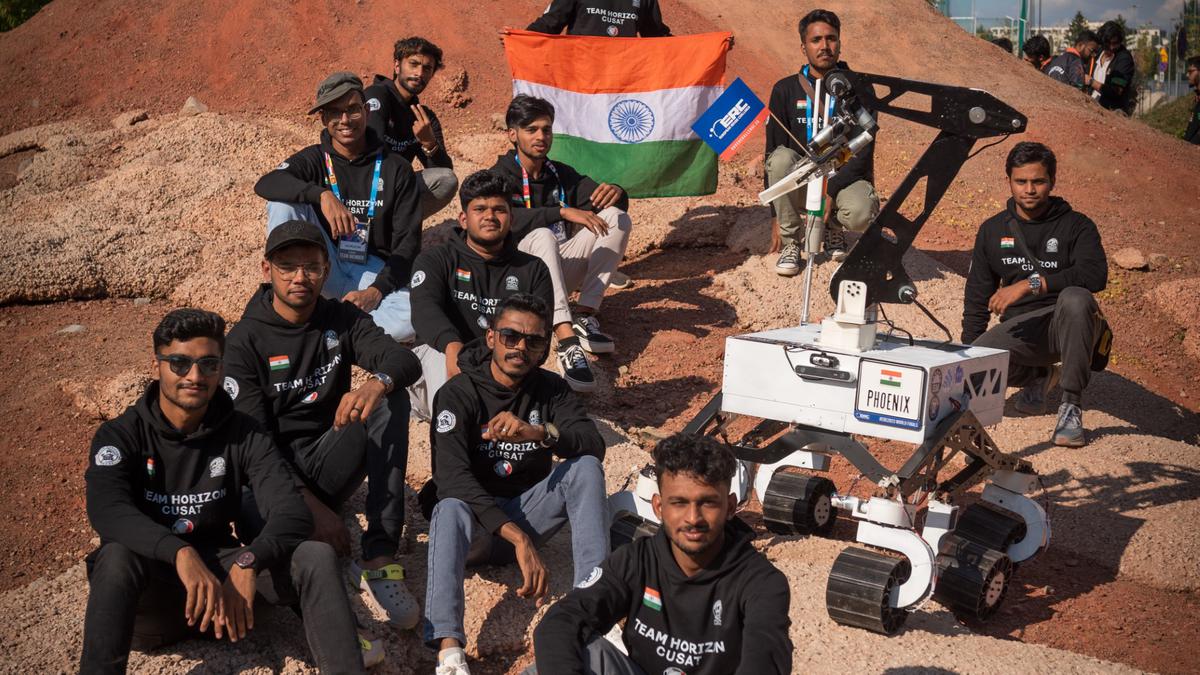
Young innovators of Cusat make a mark at international space-robotic event
The Hindu
Team Horizon, a 38-member group of young innovators from Cusat, made a mark at the European Rover Challenge 2023. They placed 19th among 25 finalists from around the world. Their rover, Phoenix, was built in two months and competed in challenging tasks based on real missions of NASA and ESA. The team faced several challenges but gained a once-in-a-lifetime experience, interacting with teams and learning unique engineering solutions.
A group of young innovators, having a shared passion for robotics and exploration at the Cochin University of Science and Technology (Cusat), made a mark at the recently concluded European Rover Challenge 2023 held at Kielce, Poland.
The 38-member ‘Team Horizon’, which was the only team from Kerala to qualify for the final round, emerged 19th among the 25 finalists from across the world. A prestigious global competition, the European Rover Challenge witnessed student teams from all over the world compete for the title of the best Mars rover construction.
Among the three teams from India that qualified for the final round, the team representing Cusat was placed second. Their rover named ‘Phoenix’ consisted of a six-wheel rocker-bogie suspension, with four-wheel independent steering. It weighed around 75 kg.
“It was once in a lifetime experience for us as we got a chance to display our passion for robotics before the international jury, which included members of the Poland’s space progamme and the European Space Agency. The teams had to compete on an artificial Martian track in Poland in numerous challenging tasks based on real missions of NASA and the European Space Agency,” said Muhammed Siyad P., team lead and a student of Computer Science Engineering.
The young innovators had faced several challenges in the preparation of the rover as they undertook its construction over the past two months. Most of the top teams had competed in the previous edition of the event. They required to only modify the rover as per the tasks outlined for this year’s competition. The team from Cusat had to build the rover, arrange the funds for its construction and travel to Poland within a short span of time.
Mr. Siyad said that they were among the few undergraduate student teams as majority of the teams comprised postgraduate students and others pursuing their PhD programme. “It was an outstanding learning experience for us as we met teams that came up with unique engineering solutions to the problems posed before them during the various rounds of the competition. We also interacted with the rest of the teams. They had no hesitation in sharing their engineering approaches and solutions with us,” he said.





















 Run 3 Space | Play Space Running Game
Run 3 Space | Play Space Running Game Traffic Jam 3D | Online Racing Game
Traffic Jam 3D | Online Racing Game Duck Hunt | Play Old Classic Game
Duck Hunt | Play Old Classic Game











